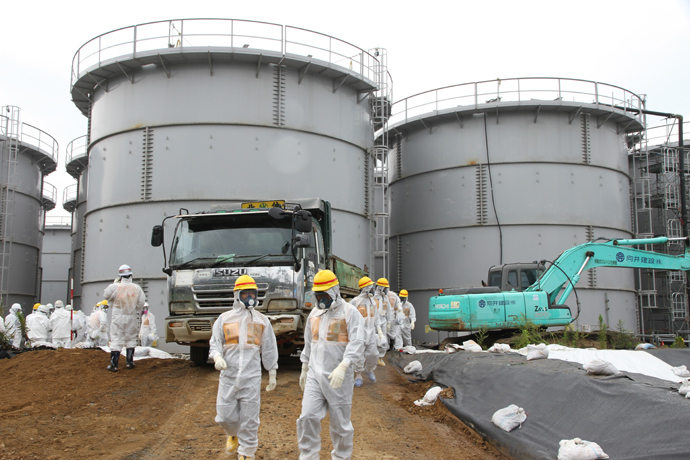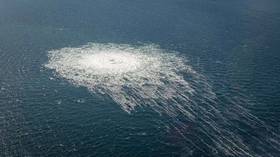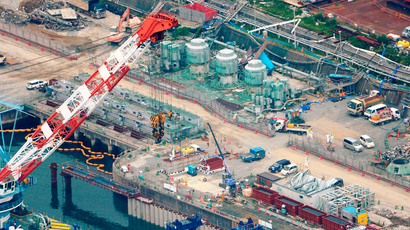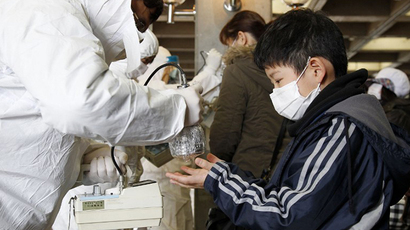New hotspot: TEPCO detects high groundwater radiation at Fukushima plant
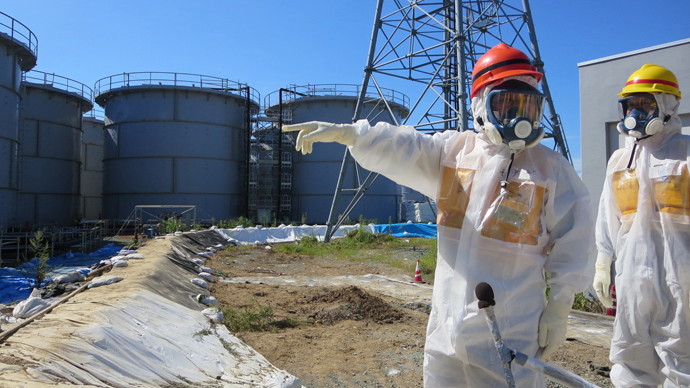
A new hotspot of radiation has been detected in groundwater from an observation well next to one of the leaking tanks at Japan’s Fukushima nuclear plant, the operator of the facility announced.
Some 3,200 becquerels per liter of radioactive substances were
recorded in a well next to a faulty water storage tank, Kyodo
News Agency reported, citing Tokyo Electric Power Co. (TEPCO)’s
Sunday readings.
The probe revealed that strontium and other malicious beta rays
were discovered in the groundwater 20 meters north of the tank,
which is located in the H4 area. According to TEPCO, this
indicates that radioactive water from leaking tanks mixed with
groundwater in the area. Last week, the company announced the
discovery of 650 becquerels per liter of radioactive waste in
another well, located about 20 meters south of the storage tank.
On Monday, the Japanese government urged the operator to propose
a plan of action by next month designed to remove contaminated
water to safer tanks. The plan is to replace 300 of approximately
1,000 tanks present on the site which store 400 tons of
contaminated water daily.
According to Japanese industry minister Toshimitsu Motegi, the
leaks have affected an area of 0.3 square kilometers within the
bay around the plant, Jiji Press reported. The minister added
that removing polluted water is the most urgent task for Japan.
The UN’s nuclear watchdog also voiced concerns on Monday about
the situation at the Fukushima-1 plant. Director General of
the International Atomic Energy Agency (IAEA), Yukiya Amano, said
the leakage is "a matter of high priority that needs to be
addressed urgently,” promising to send an international
mission to help the situation.
The Japanese government announced last week a plan to create a
wall of ice under the plant to stop drainage of contaminated
water by the end of March 2015. Meanwhile, TEPCO wants to pump
the water out of the wells before it reaches the Pacific Ocean.
But the measures taken by the government have not been received
well by the public.
A survey conducted by Asahi Shimbun newspaper revealed on Monday
that 72 percent of those surveyed considered the government's
response to be “late" and the situation on the ground to
be "very serious." Eighty-nine percent said that the
government - not TEPCO - should take charge of the situation.
